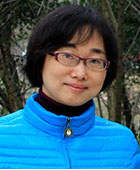How it feels when mom does that and why she does so?”
Chinese and Western children and youth’s perceptions
about psychologically controlling parenting

Qian Wang is an Associate Professor at the Department of Psychology, the Chinese University of Hong Kong. She received her PhD degree in Developmental Psychology from the University of Illinois at Urbana-Champaign, the United States. Her major research interests include social and personality development during childhood, adolescence, and emerging adulthood, parenting, and cultural influences on parental socialization as well as child and youth development.
Dr. Qian WANG
Associate Professor
Department of Psychology
The Chinese University of Hong Kong
One typical portrayal of Chinese parenting involves psychological control – for example, parents making children feel guilty or ashamed and threatening to withdraw their love from children when children do not meet their expectations. Psychologically controlling parenting has been evidenced to be detrimental to children and youth’s development in Western cultures, as it intrudes upon children and youth’s sense of self. There are arguments that in Chinese culture, parents’ use of psychological control may be driven by their goals to socialize children and youth into properly behaving and moral members of the society, and Chinese children and youth may indeed appreciate psychologically controlling parenting as out of parents’ benign intentions, thereby not being affected adversely. This talk will present two studies investigating Chinese children and youth’s perceptions of psychologically controlling parenting, in comparison to their Western counterparts in Canada and the United States. These studies show that despite some subtle cross-cultural differences, like their Western counterparts, Chinese children and youth generally find psychologically controlling parenting to be unfavorable, in terms of both how it may affect children and youth’s development and why parents may use it. Implications of the findings for parenting in contemporary Hong Kong will be discussed.


